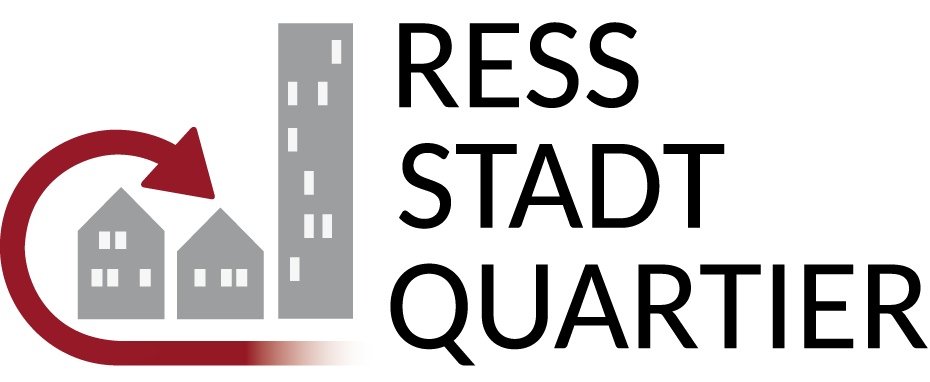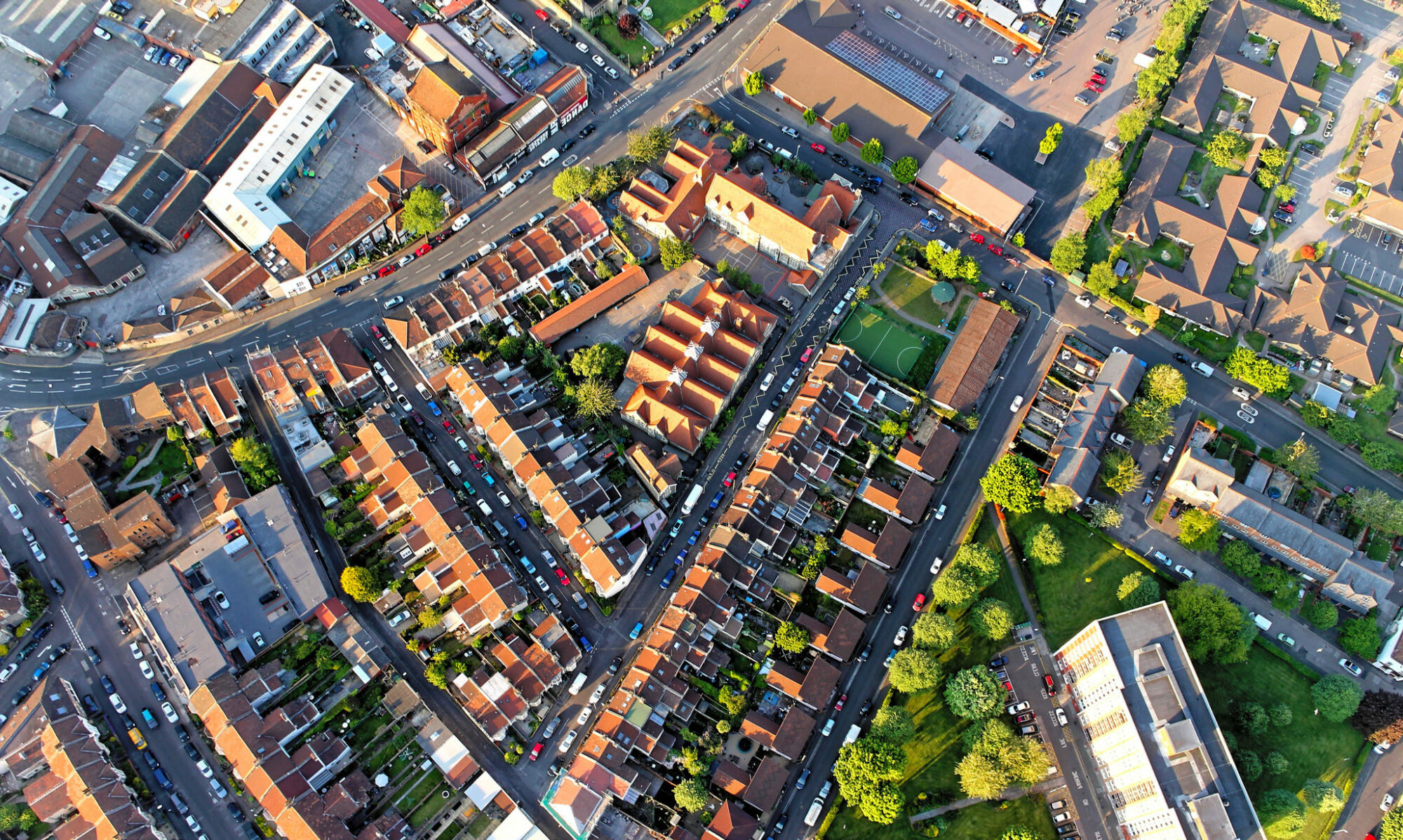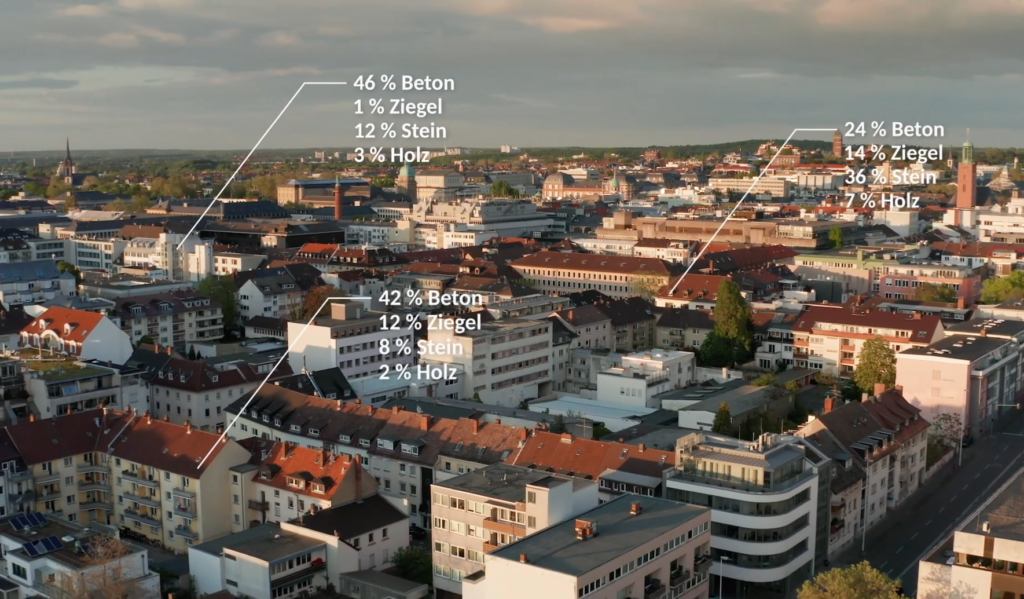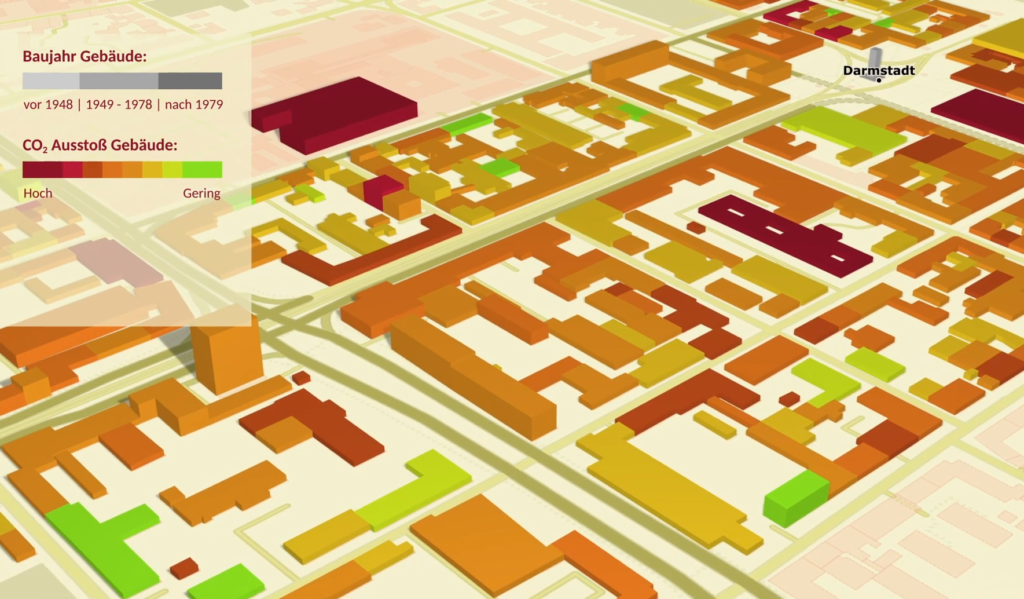RessStadtQuartier 2 – Urban material flow management: tools for the resource-efficient development of urban districts

The existing stock of built urban districts represents a repository of materials released during refurbishment, conversion, or demolition and are to be returned to high-quality recycling cycles as secondary raw materials. Therefore, resource-efficient material flow management in urban districts is of particular importance. The “Resource Efficiency Toolbox” aims to assist in making sustainable choices during all phases of district development.
Managing urban material flows in a resource-efficient way
The sustainable development of urban districts is closely linked to increasing the resource efficiency of material flows: The basis for a resource-efficient use of material flows is integrating district-related material flow management into municipal planning processes. This management controls material flows in all phases of the district development, from new planning through use or conversion to demolition. In addition, the material flows of different sectors, such as construction materials for buildings and infrastructure, energy sources for electricity and heat provision, or emissions, such as greenhouse gases or waste, are combined.
Resource Efficiency Toolbox
A “Resource Efficiency Toolbox” was developed in the first project phase to evaluate and increase resource efficiency within a district-related material flow management. This toolbox contains knowledge, an information base, and practice-related instruments with which suitable measures for improving resource efficiency can be implemented in all phases of neighborhood development. The innovation potential and the novelty of the “Resource Efficiency Toolbox” developed in RessStadtQuartier lies in the combination of approaches of Life Cycle Assessment (LCA), Building Information Modeling (BIM), and GIS-based cadastres. This is done conceptually by interlacing the “physical life cycle” with the “planning cycle” of districts.
The toolbox comprises the following five tools:
- Material Database: systematic collection of raw material inventories
- Building Material Cadastre (GMK ®): GIS-based tool for categorizing residential buildings and determining the expected types and quantities of building materials
- RessStadtQuartier-Building Information Modelling-Viewer (RSQ-BIM-Viewer): semi-automated reconstruction of digital images of existing buildings
- LC-Quartier Tool: life-cycle-based calculation tool for greenhouse gas emissions
- Circular-Module: information and evaluation tool for analyzing the contribution of secondary raw materials to resource efficiency
Follow-up phase: Objectives, procedure, and expected results of the implementation and consolidation phase
The project RessStadtQuartier2 aims to establish the “Resource Efficiency Toolbox” for district-related material flow management in practice, to test it within the framework of actual planning processes, and to develop it further depending on the application requirements. This toolbox is to be used in various fields of application in real planning processes and thus systematically increase the resource efficiency of urban quarters. The direct utilization of the project results occurs both in the participating city of Darmstadt and in the partner cities of Wiesbaden and Bensheim, the municipality of Münster (Hesse) and Otzberg, as well as in real estate companies. On the one hand, this includes continuing planning processes and developing guiding principles for a “resource-efficient city district” intended by the cities. On the other hand, the findings on resource efficiency will be brought into widespread use in the form of a business model to be developed and made accessible to other potential users.
Project title
RessStadtQuartier 2 –
Urban material flow management: tools for the resource-efficient development of urban districts
Internet
RessStadtQuartier2
Duration
01.09.2022–31.08.2024
Funding code
033W109AN
Funding
896.905 €
Contact
Prof. Liselotte Schebek
Technische Universität Darmstadt
06151 1620720
l.schebek@iwar.tu-darmstadt.de
Project partners
Technische Universität Darmstadt
Fraunhofer-Einrichtung für Wertstoffkreisläufe und Ressourcenstrategie IWKS
UMGIS Informatik GmbH
Wissenschaftsstadt Darmstadt
Version of
Mai 2023
Information on the first funding phase (2019 – 2022) can be found here
Results
Results of the second funding phase
Results of the first funding phase
Results of 2019 – 2022 –
Contribution to the publication of the results of the first funding phase Instrumente für die ressourceneffiziente Entwicklung von Stadtquartieren
Results of 2021 – Contributions to the RES:Z-Newsletter 3: Building Information Modelling-Viewer, Das Gebäude-Material-Kataster (GMK) geht in den Endspurt
Results of 2020 – Contribution to the RES:Z-Newsletter 2: Grenzen und Möglichkeiten der ressourceneffizienten Stadtentwicklung
Results of 2019 – Contributions to the im RES:Z-Newsletter 1: Konversionsflächen als Rohstofflager, Zielsetzungsworkshop




